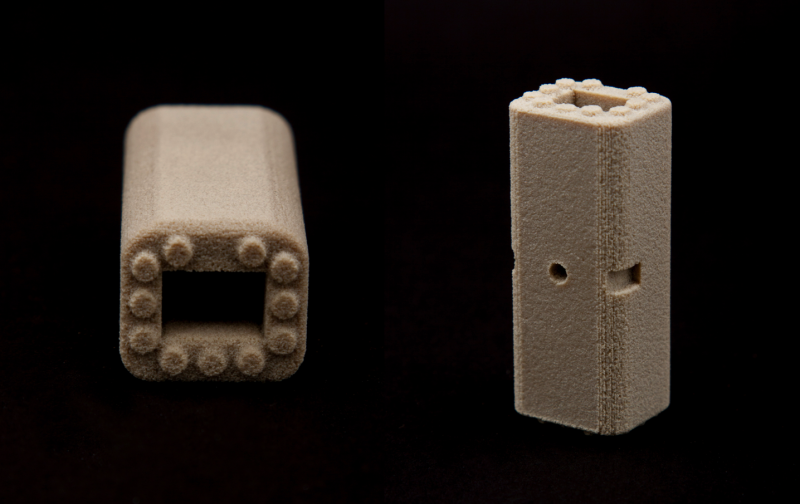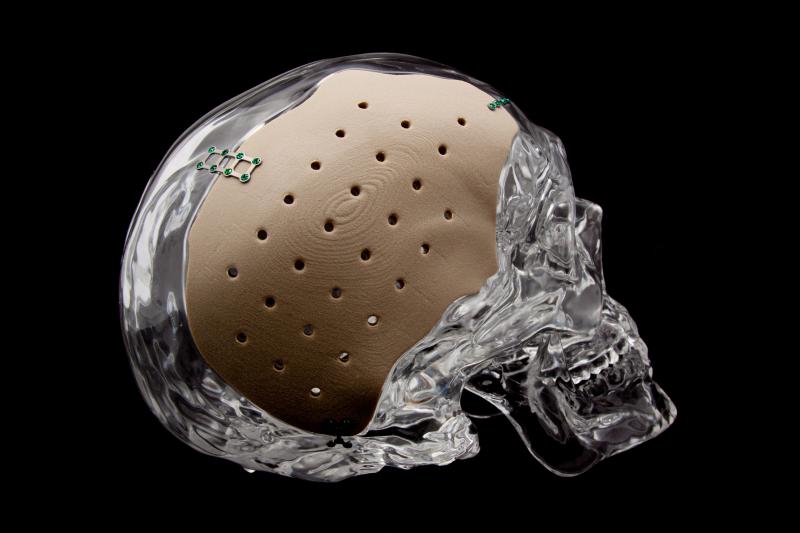High performance additive manufacturing (HPAM) and material science company Oxford Performance Materials (OPM) has partnered with advanced material supplier JSR Corporation in Tokyo to launch medical & dental operations across Asia.
Under the new partnership, JSR has an exclusive regional license to provide and distribute OPM’s PEKK based 3D printing services and consumables.
The two entities will operate together as OPM Asia, and aim to reach across 14 different regions: Japan, China, Taiwan, Korea, Brunei Darussalam, Cambodia, Lao PDR, Malaysia, Myanmar, Philippines, Singapore, Thailand, Vietnam and India.

Certified 3D printed medical devices
OPM’s high performance polymer based PEKK operations are offered as the OXPEKK materials range, and the OsteoFab biomedical device 3D printing technology.
In recent years, OPM has been steadily gaining FDA certification for patient-specific 3D printed medical devices made from OXPEKK materials. Furthermore, hinting at the most recent move with JSR, OXPEKK technology attained Accreditation of Foreign Medical Device Manufacturer (FMDM) from the Japanese Ministry of Health, Labour and Welfare back in March 2018.
OsteoFab, by contrast, is the engine used to 3D print medical devices from OXPEKK polymers. With this system, OPM strives to streamline the device production process, efficiently designing, manufacturing and marketing products for biomedical and dental markets.
The specific technology used for the process is selective laser sintering (SLS) on an EOSINT P800 system. Devices made using the technology have proven to improve the osseointegration (bone on growth) of alternative mass-manufactured medical implants.

A multi-billion dollar opportunity
OPM founder and CEO Scott DeFelice will also serve as CEO of OPM Asia in this new partnership with JSR. OPM Chief Business Development Officer Bernard Plishtin and a representative of JSR will join DeFelise on company’s board of directors.
Commenting on the strategic decision, DeFelice says, “Asia’s healthcare industry is growing rapidly, and with that growth comes increased demand for medical innovation that delivers improved clinical effectiveness to more people with superior economics.”
Additionally, “…JSR will be a strong, influential partner to OPM,”
“We are extremely pleased that JSR has decided to finance the OPM Asia enterprise and work with us to establish the OPM technology platform throughout Japan and the wider region.”
According to Frost & Sullivan market research, Asia’s healthcare industry in expected to grow 11.1% to $517 billion by 2019.
To stay up to date with all the latest medical 3D printing movements follow 3D Printing Industry on Twitter, and subscribe to our free additive manufacturing newsletter for regular digests.
Seeking a new job in 3D printing or looking to hire? Create a profile now on our 3D Printing Jobs site.
Featured image shows a 3D printed skull with an OXPEKK cranial implant. Photo via Oxford Performance Materials



